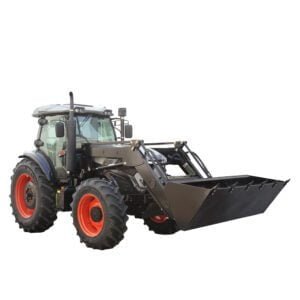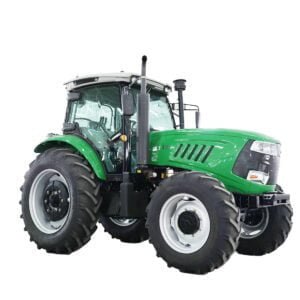Welcome to My Blog!
Before we dive into the content, I’d love for you to join me on my social media platforms where I share more insights, engage with the community, and post updates. Here’s how you can connect with me:
Facebook: https://www.facebook.com/profile.php?id=100072217509763
LinkedIn: https://www.linkedin.com/company/74949059/admin/dashboard/
YouTube:www.youtube.com/@tractormanufacturer-lc5qz,www.youtube.com/@excavatormanufacturers-sn9hk
TikTok: www.tiktok.com/@tractormanufacturer, www.tiktok.com/@excavatormanufacturers
Now, let’s get started on our journey together. I hope you find the content here insightful, engaging, and valuable.
Introduction
Understanding the essential parts of a tractor is crucial for every farmer. Tractors are complex machines with numerous components that work together to ensure optimal performance. Whether you are a seasoned farmer or new to the field, knowing these key tractor parts can help you maintain and repair your equipment more efficiently. In this blog post, we’ll cover the top 10 tractor parts every farmer should know about, their functions, and why they are important.
Engine

Key Functions of the Tractor Engine
The engine is the heart of a tractor. It powers the vehicle and drives all other components. Understanding how your tractor’s engine works can help you diagnose performance issues and ensure it runs smoothly.
Common Engine Problems and Solutions
Common issues include overheating, starting problems, and loss of power. Regular maintenance and timely repairs are essential to keep the engine in good condition.
Transmission System
Types of Tractor Transmissions
The transmission system controls the speed and torque of the tractor. There are several types of transmissions, including manual, semi-automatic, and fully automatic. Each type has its advantages and specific use cases.
Maintaining Your Transmission System
Regular checks and fluid changes are crucial to prevent transmission failure and ensure smooth operation.
Hydraulic System
The Importance of the Hydraulic System
The hydraulic system is responsible for powering various attachments and implements, such as loaders and backhoes. It uses fluid pressure to operate and control these components.
Troubleshooting Hydraulic Issues
Common problems include leaks, low fluid levels, and slow response times. Regular inspections and proper maintenance can help address these issues.
Steering Mechanism
Types of Tractor Steering Systems
Steering mechanisms can be either manual or hydraulic. Understanding how each system works can help you maintain better control over your tractor.
Common Steering Problems
Problems like unresponsive steering or uneven handling can indicate issues with the steering mechanism. Regular maintenance can help prevent these issues.
Brake System
Importance of Proper Brake Maintenance
The brake system ensures the tractor can stop safely and effectively. Regular maintenance and inspections are crucial for safety.
Common Brake Issues
Brake problems can include worn-out pads, leaks, and inadequate stopping power. Regular checks can help you address these issues promptly.
PTO (Power Take-Off) System
Understanding the PTO System
The PTO system transfers power from the tractor to various implements, such as mowers and balers. Knowing how it works can help you use it effectively and safely.
Troubleshooting PTO Problems
Common issues include PTO shaft wear and difficulty engaging. Regular maintenance can help prevent these problems.
Axles and Wheels
-
 4 Wheel Drive 140HP Tractor 1604
4 Wheel Drive 140HP Tractor 1604 -
 140HP Farm Tractor 1404
140HP Farm Tractor 1404 -
 130 HP Farmall Tractor 1304
130 HP Farmall Tractor 1304 -
 The Heaviest QILU 260HP Modernization Tractor
The Heaviest QILU 260HP Modernization Tractor -
 Powerful QILU 240HP Heavy Chassis Tractor
Powerful QILU 240HP Heavy Chassis Tractor -
 International Standard Power QILU 220HP Farming Tractor
International Standard Power QILU 220HP Farming Tractor -
 China 100HP Tractor Supplier
China 100HP Tractor Supplier -
 OEM 80HP Tractor Factory
OEM 80HP Tractor Factory -
 China 70HP Tractor Wholesale
China 70HP Tractor Wholesale
The Role of Axles and Wheels
Axles and wheels support the tractor’s weight and provide stability. Proper maintenance ensures that your tractor operates smoothly and safely.
Common Issues with Axles and Wheels
Problems such as misalignment and wear can affect tractor performance. Regular checks and timely repairs are essential.
Fuel System
Importance of a Well-Maintained Fuel System
The fuel system supplies the engine with the necessary fuel to operate. Regular maintenance can prevent issues like clogging and poor engine performance.
Troubleshooting Fuel System Problems
Common issues include fuel leaks, clogging, and poor fuel quality. Regular inspections and proper maintenance can address these problems.
Electrical System
Key Components of the Tractor Electrical System
The electrical system controls lights, signals, and other electronic components. Understanding its parts can help you diagnose electrical issues more effectively.
Common Electrical Problems
Issues can include battery failure, faulty wiring, and malfunctioning lights. Regular inspections and timely repairs are crucial.
Cooling System

The Role of the Cooling System
The cooling system prevents the engine from overheating by regulating its temperature. Proper maintenance is essential to avoid overheating and engine damage.
Troubleshooting Cooling System Issues
Common problems include leaks, clogged radiators, and malfunctioning thermostats. Regular checks can help you maintain an efficient cooling system.
Table: Comparison of Tractor Parts
| Tractor Part | Function | Common Issues | Maintenance Tips |
|---|---|---|---|
| Engine | Powers the tractor | Overheating, loss of power | Regular oil changes, inspections |
| Transmission System | Controls speed and torque | Slipping, rough shifting | Fluid checks, timely repairs |
| Hydraulic System | Operates attachments and implements | Leaks, slow response | Check fluid levels, inspect hoses |
| Steering Mechanism | Controls direction of the tractor | Unresponsive steering | Regular checks, adjustments |
| Brake System | Ensures safe stopping | Worn pads, leaks | Inspect pads, check fluid levels |
| PTO System | Transfers power to implements | Shaft wear, difficulty engaging | Regular lubrication, check alignment |
| Axles and Wheels | Support weight, provide stability | Misalignment, wear | Regular inspections, alignment checks |
| Fuel System | Supplies fuel to the engine | Leaks, clogging | Regular fuel filter changes, check for leaks |
| Electrical System | Controls lights and electronics | Battery failure, faulty wiring | Check battery, inspect wiring |
| Cooling System | Regulates engine temperature | Leaks, clogged radiator | Inspect coolant levels, radiator cleaning |
Conclusion
Understanding these top 10 tractor parts is essential for effective maintenance and repair. By familiarizing yourself with these components, you can ensure your tractor operates smoothly and efficiently, reducing downtime and extending the life of your equipment.
FAQ
1. How often should I perform maintenance on my tractor?
Regular maintenance should be performed according to the manufacturer’s recommendations, typically every 50-100 hours of operation or at least once a year.
2. What are the signs that a tractor part needs repair?
Common signs include unusual noises, decreased performance, leaks, and warning lights. Regular inspections can help identify issues early.
3. Can I perform maintenance tasks myself, or should I consult a professional?
Many basic maintenance tasks can be performed by yourself with the right knowledge and tools. For complex repairs, consulting a professional is recommended.
4. How can I extend the life of my tractor parts?
Regular maintenance, timely repairs, and using high-quality parts can help extend the life of your tractor parts.
5. Where can I find replacement parts for my tractor?
Replacement parts can be found at authorized dealers, tractor parts suppliers, and online retailers. Always ensure you purchase parts that are compatible with your tractor model.





-1.png)